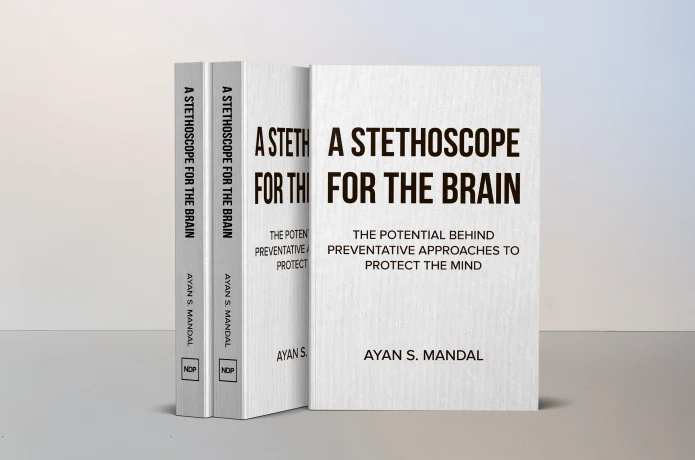
Ayan Mandal has written a book on brain diseases and the latest research on how to manage them.
My hope is that, in reading this book, people will discover the promise behind preventative approaches to protect the brain.
Ayan Mandal
A Gates Cambridge Scholar is fundraising to publish a book about proactive strategies to prevent brain diseases.
Ayan Mandal’s book A Stethoscope for the Brain aims to explain why brain diseases are so difficult to treat and what research is being done to learn how to better manage these conditions.
Ayan [2018], who is currently a medical student and neuroscientist at the Perelman School of Medicine at the University of Pennsylvania, wrote his Cambridge PhD thesis on network neuroscience and brain tumours. His research has been presented at several national and international conferences and published in multiple peer-reviewed journals.
Ayan’s decision to write the book stems from his interest in both writing and science communication.
It covers brain diseases and neuroscience research, including lessons from a sisterhood of Catholic nuns who taught the world the secret to avoiding dementia; genes which predict the onset of neurodegenerative disorders like ALS (Lou Gehrig’s disease), and how they may facilitate early treatment; and proactive measures to blunt multiple sclerosis, an autoimmune condition which causes significant disability.
Ayan says: “My hope is that, in reading this book, people will discover the promise behind preventative approaches to protect the brain. In this book, I hope to instill in others the same sort of passion and excitement that I have for neuroscience and health. Ultimately, I want people to see this book as a tool to help them think about the future of brain health, especially as it relates to protecting both their own brain and those of their loved ones.”
*To support Ayan’s pre-sale campaign to cover the publishing costs of the book and to find out more, click here.












